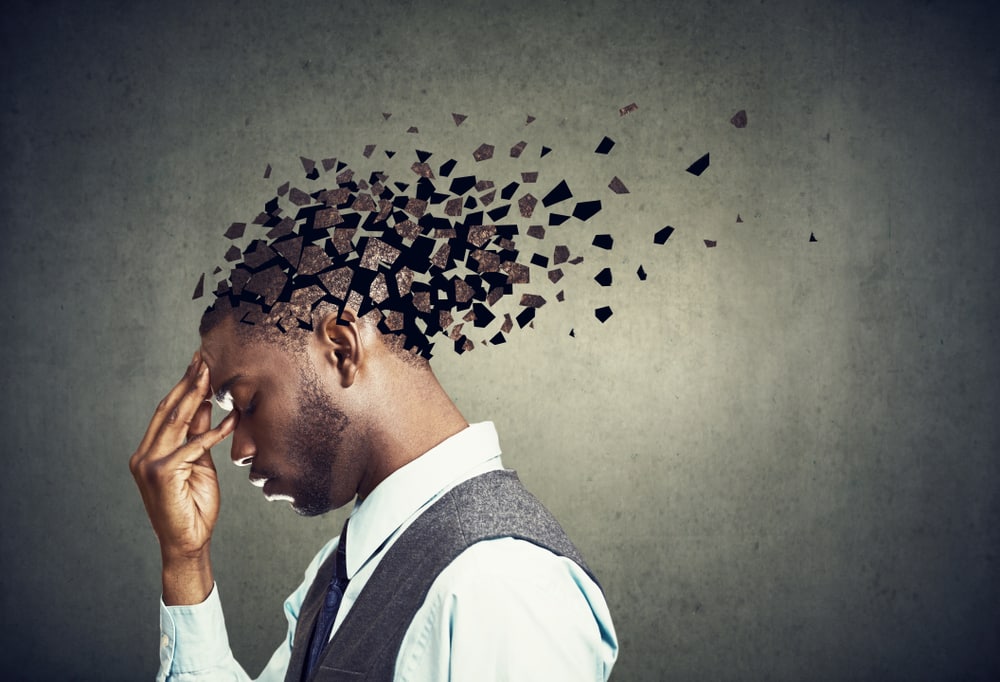
Trauma Treatment for Mental Health and Addiction Recovery
- What is Post Traumatic Stress Disorder?
- What is the correlation between Trauma and Substance Addiction?
- How do I know if I have a Trauma related Substance Addiction?
- Co-occurring Mental Health Conditions are often associated with Trauma
- Our specialized treatment methods for addressing Trauma Related Addiction
- Gender targeted PTSD treatment for Men
- Trauma treatment developed uniquely for Women
- Get Help
- Request a Call
Trauma and other mental health disorders can exacerbate the effects of a substance addiction. Addressing these two conditions simultaneously is the most effective way to treat an individual for their drug and alcohol addiction. At Hotel California by the Sea Ohio, we offer an exclusive trauma related addiction treatment for those experiencing drug and alcohol addiction. Our program involves a highly integrative collection of specialized behavioral therapies as well as medication-assisted treatments.
OR:
Request a Call

Many of our patients enter into our trauma and substance abuse rehab program with trauma related mental health conditions. Trauma or post-traumatic stress disorder (PTSD) is one of the most common co-occurring mental health disorders that can develop alongside an alcohol or drug addiction. By incorporating a treatment plan addressing both conditions, patients have a much greater chance at uncovering the root causes of their addiction and ultimately, maintaining long term sobriety.
What is Post Traumatic Stress Disorder?
Trauma is a well-known risk factor to the development of a substance use disorder (SUD) and other co-occurring mental health conditions. Trauma or post-traumatic stress disorder (PTSD) is an involuntary bodily or emotional response to a distressing event or situation. PTSD can lead to self worth and self esteem issues, and the inability to regulate and cope with stressful emotions. Some of the symptoms of this mental disorder can include anxiety, disrupted sleeping patterns, irritability and more. Some of these symptoms can also mimic symptoms of other mental health illnesses. In extreme cases, these symptoms can become extremely distressing and can lead to the desire to escape or self-medicate with alcohol and other drugs.
Trauma can be triggered by anything from sexual abuse or violence, emotional abuse, physical abuse, or death of a loved one. Traumatic experiences can cause chemical and biological changes in the brain, which can activate other symptoms associated with the development of a mental illness. What is traumatic to one person may be less traumatic to the next. Trauma is also formed relative to the person’s age.
What is the correlation between Trauma and Substance Addiction?
Treating trauma while also treating addiction to drugs and alcohol is an extremely crucial part of a successful recovery process in rehab. By focusing on these two issues and their often-overlapping symptoms and behavioral patterns, our trauma treatments for addicts have the opportunity to treat our clients more effectively.
Research has shown trauma experienced at an early age in life, often leads to the chances of developing an addiction to substances during adult years. This form of self-medication is utilized to help them regulate and control their emotions, while masking the pain of the disturbing experience.
Our experienced team of clinical addiction professionals understand the importance of helping our patients build effective and healthy emotional coping skills. Trauma related addiction treatment helps patients improve their ability to manage uncomfortable feelings through a strong support network and evidence proven substance use disorder treatments.

How do I know if I have a Trauma related Substance Addiction?
Signs and symptoms of trauma can differ from person to person and can also be dependent on the gender of the individual. Some clues can begin appearing as early as three months after a traumatic incident has been experienced and some signs can occur a year later. The following indicators from a clinical diagnosis can help identify signs of trauma and PTSD.
- Re-experiencing symptoms – when flashbacks, nightmares or disturbing thoughts often affect a person’s daily routine
- Avoidance symptoms – when a person purposely changes up their daily routine in order to stay away from certain places or events due to triggered feelings
- Arousal and reactivity symptoms – when a person is easily startled and constantly feeling on edge
- Cognition and mood symptoms – when a person has negative thoughts and feelings and loss of interest in activities they once loved
We specialize in treating co-occurring mental health conditions such as trauma through our inpatient and outpatient programs targeting this distressing emotional journey. Our specialized group and individual behavioral therapies along with medication management programs help our clients through their difficult issues that have contributed to their substance use disorder.
Co-occurring Mental Health Conditions are often associated with Trauma
Trauma and co-occurring mental health disorders are often very closely linked and by addressing these two issues together, there is a greater chance for achieving long-term recovery. In some cases trauma can be a primary predictor to future substance use disorders and can even lead to the development of other mental health disorders. Our specialized therapies such as CBT, DBT and EMDR therapy are proven methods utilized to treat those suffering from trauma and other co-occurring mental health illnesses.
Our specialized treatment methods for addressing Trauma Related Addiction
At Hotel California by the Sea Ohio, we offer many treatment options for those suffering from trauma, PTSD, anxiety, depression, emotional dysregulation and much more. Through various levels of care including detox, residential treatments, and outpatient programming, patients will be able to unpack and address their traumatic experiences that can be a contributing factor to their substance use disorder.
Upon entrance into our trauma and substance abuse program, patients are given a full biopsychosocial assessment in order to diagnose and psychological conditions that may be present. Patients will be given regular assessments to track their progress and make any adjustments to treatment plan as necessary. Successful long-term recovery from substance addictions requires the treatment of all co-occurring mental health illnesses that coincide with addiction. We especially focus on the mental health disorders that are caused by trauma and PTSD.
We offer gender targeted programming and a multitude of options of trauma treatments for addicts. Our experienced rehab clinicians and evidence proven therapies help individuals from all backgrounds heal from trauma and addiction. Everyone deserves to live a happier and healthier life away from the destruction of trauma-related substance abuse.
Dialectical Behavioral Therapy (DBT)
Dialectical behavior therapy (DBT) is often used as a treatment toll for those suffering from trauma-related addiction. DBT teaches patients to effectively manage painful emotions. Individuals will work on acceptance of their past traumatic experiences. They will work on tolerance and coping techniques when faced with negative emotions or experiences. Ultimately, patients will learn how to effectively change and avoid future intense emotions or behaviors related to their addiction.
Cognitive Behavioral Therapy (CBT)
Cognitive behavioral therapy (CBT) encourages patients to re-evaluate their negative thinking patterns by addressing negative events, thoughts and feelings related to their trauma and addiction. CBT teaches effective strategies in helping to reprocess distressing feelings into a positive and productive outcome. This type of behavioral therapy is often used to help treat patients suffering from trauma and other co-occurring mental health disorders related to their substance addiction.
EMDR (Eye Movement Desensitization and Reprocessing Therapy)
Eye movement desensitization and reprocessing therapy is a specialized form of therapy created to treat patients dealing with the symptoms and emotional distresses of trauma and disturbing experiences and events. EMDR therapy uses specialized eye movement tracking techniques while simultaneously asking patients to recall traumatic events or memories.
Traditionally utilized to treat patients with PTSD and other trauma-related mental health illness, EMDR therapy can now be applied to treatments for all types of co-occurring mental health conditions. EMDR therapy helps patients rework and redirect how the brain processes any traumatic past events or memories in order to reduce the difficult symptoms that are usually associated with their trauma and substance use disorder.
Grief and Loss Counseling
Grief and loss counseling is often used to treat those who are experiencing trauma stemming from death and loss of a loved one. This treatment method helps patients heal in a healthy manner through coping techniques to help them manage distressing emotions. The five stages of grief that are typically experienced are denial, anger, bargaining, depression and acceptance. Some of the most common symptoms of grief trauma can include shock and disbelief, despair, guilt, anger along with physical symptoms of weight loss or gain and insomnia.
Peer Support Groups and Group Therapy
Oftentimes individuals who suffer from trauma-related addiction can feel isolated and lonely. It can be difficult for family and friends to understand where they are coming from and what they have experienced. Group therapy and peer support groups for trauma-related addiction treatment can help patients build a strong support system of recovering peers. These group members may be in similar life situations or may be experiencing the same feelings and emotions. Group therapy allows a safe and welcoming space where members can share, listen and encourage one another. Peer recovery support groups are also encouraged as an effective treatment method to help patients feel as if they are working as a member of a community toward healing and recovery.
Mindfulness techniques, Meditation, and other Holistic Practices
Research has shown that trauma and PTSD can negatively alter the structures and chemical makeup of our brain. It specifically causes lasting damage on the prefrontal cortex and hippocampus, which is responsible for our flight or fight responses. Through practices of mindfulness and meditation, parts of our brain can begin to repair itself and return to its normal functioning status.
Mindfulness and meditation are holistic approaches to trauma and substance abuse treatment helping patients create a sense of awareness of the space between our thoughts and emotions. By utilizing this approach to healing, patients will learn how to distinguish any destructive thoughts and emotions and make positive changes in order to achieve emotional well-being.

Gender targeted PTSD treatment for Men
At Hotel California by the Sea Ohio, we offer specialized gender specific treatment programs for men. Men face unique challenges when it comes to trauma treatment for addicts. As a result of social and cultural conditioning, many men do not believe they need treatment for their trauma. By suppressing these distressing emotions and situations, the trauma can be a spark for the development of other mental health disorders such as alcoholism and drug addiction.
In our trauma and substance abuse treatment program, we offer highly effective behavioral therapies such as CBT, DBT and EMDR therapy to address issues with trauma related addiction. When men are surrounded by other male peers in a safe and structured environment, they are more willing to open up to vulnerability and receive treatment. Our team of medical physicians, psychiatrists, case managers and other clinical professionals are equipped with the necessary experience and expertise to help patients achieve their goals for recovery and freedom from addiction.
Trauma treatment developed uniquely for Women
Targeted, specialized, trauma-related substance addiction treatment for women has been proven to yield greater rates of recovery and long-term sobriety. Research has shown women are much more likely to experience traumatic events in childhood, adulthood and throughout the duration of their active addiction. Because of this, they face unique obstacles and have different needs when it comes to facing their addictions and dealing with trauma.
Hotel California by the Sea Ohio, offers an exclusively female treatment program specializing in trauma-related addiction treatment for women who suffer from PTSD and other mental health disorders. Females are surrounded by other recovering peers in a safe environment for them to address the intricacies of their addiction and ultimately heal. Women will learn effective coping techniques to help them manage emotional and stressful events and feelings related to their trauma and addiction. Through various levels of care such as detox, residential and outpatient programming, patients will successfully work towards achieving a healthier and higher quality of life away from addiction.
Get Help
At Hotel California by the Sea Ohio, we specialize in treatment for trauma related addiction and other co-occurring mental health conditions. We offer unique behavioral therapies such as EMDR therapy to help patients understand their addiction, treat their addiction, and make positive changes for the future. Call our admissions team today to learn about the various levels of care for treating trauma related substance addictions. We believe in treating our patients holistically by actively addressing both the physical and psychological aspects of their addiction.
Request a Call
The road to recovery is full of uncertainty, leave your worries behind…
Our compassionate staff will answer all of your questions without any pressure. Learn about our evidence-based drug addiction treatment and rehab, the ease of entering our program, and the benefits of getting help from a reputable addiction treatment facility like Hotel California by the Sea.
Every member of our admissions team has been where you are today – be sure to ask them about their journey!






